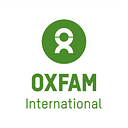Interview with Eco Feminist Activist Safa’ Al Jayoussi
Devising Solutions to Climate change; Transforming Systems of Power
By Farah Kobaissy
Safa’ Al Jayoussi is an international award winning advocate and leading regional campaign advisor on climate and energy. Since 2008, she has been an official climate change negotiations observer under the UNFCCC, and became a reference for Arab speaking world on climate policy. She played a major role in COP21 in successfully lobbying the Arab League to sign the agreement.
Around the globe, the multigenerational climate movement is growing. At the same time the consequences of climate change are being felt more strongly across the Middle East and North Africa (MENA), with increased wildfires, worsening droughts, depleting biodiversity and water scarcity. However, climate change is yet to be seen as an issue of public discussion in the MENA region. Why do you think that’s the case?
There are multiple reasons for this. Firstly, climate change is only discussed when a disaster hits. As someone who sees climate change as a cross-cutting issue that shouldn’t only be discussed when a calamity arises, this saddens me. Most importantly, climate change shouldn’t be blamed for the mismanagement of the countries’ resources. Secondly, climate change is still perceived by the public and on official levels as a privileged or a luxury issue, especially now amidst the pandemic. However, I am happy to see more and more young people are talking about it. Fifteen years ago, when I first engaged with climate change, people didn’t know much, Now awareness on climate change is growing but when it comes to official actions, there are only talks, and rarely any walks.
In the instances where climate change is discussed, it is rarely approached from an intersectional lens. Usually, climate and gender and social inequalities are discussed separately. What and who, do you think we are excluding, when we follow a single issue discussion, or build a single issue narrative on climate?
Fifteen years ago, when I would speak about climate, I did so in a very narrow way, limiting my discourse to the reduction of the greenhouse gases. Now I understand that climate change is not only about that. In fact, we cannot speak about climate change while ignoring human rights, gender justice and social inequalities as direct outcomes of patriarchy, capitalism and militarism. For example, Palestinian environmental and climate justice activists provide a great example of how climate cannot be dissociated from political, economic and social realities. All the while, you need to be cautious that in the MENA region talking about these subjects can cause you problems. For many, it’s much easier and even “safer” to speak about climate change in a silo.
As you mentioned, intersectionality is about how climate change is lived. People experience climate change in an intersectional way, because its impact is felt differently, by different people. How do you think the hazardous effects of climate change would impact women specifically? And why must women’s voices be included in discussions around climate change?
In MENA, women’s voices are absent from many important discussions, not just the ones on climate. It is undeniable that climate change has an unequal impact on people and hits women and the most vulnerable people more strongly, especially on the level of livelihoods and economic activity. Climate is impacting crop yield, water resources and the agriculture which are the source of livelihood for many women in the region. Conflicts can also have an impact; For example, women and children in the Zaatari refugee camp in Jordan are severely impacted by drought and extreme weather events. Adding to this is the growing phenomenon of ‘climate refugees’ and we know that in the humanitarian context, women and LGBTQI+ people are most vulnerable and face risks of sexual and gender based violence. For all these reasons, having women’s voices and mainstreaming gender in climate change discussions is very important.
From a feminist ecological climate advocacy lens, what do you think needs to change and what would you recommend as advocacy asks for the MENA region today?
Each country is different but what I want to see changed is the transitioning of power towards people. Let’s take the energy sector as an example, from an eco-feminist perspective, a transitioning of power means to transition out of the current fossil fuel energy towards renewable energy. However, while doing so, we don’t want the same companies that owned the fossil fuels- the multi-billionaires who are causing climate change- to become the ones who provide renewable energy and control it. We don’t want another face for the same patriarchal and capitalist system. We need to have decentralized renewable energy sources that people can have power over. In many countries across MENA, governments and fossil fuel industries are preventing communities from owning their own energy sources; because energy is power and without shifting this power from the fossil fuel industry to communities nothing major will change. The greenhouse gases will definitely be reduced, but the system that created them will remain intact. This is also the same for the transportation sector, which is one of the heaviest emitter of greenhouse gases in our region. For example, we cannot have a public low or zero carbon transportation system that is hostile to women, and which they cannot use because of sexual harassment. The government can definitely proclaim reducing greenhouse gases’ emissions but it’s not only about that; it’s about people using, owning and controlling renewable resources and this is what we mean by climate justice and just transition. What we don’t want are solutions to climate change from within the same system that created it.
